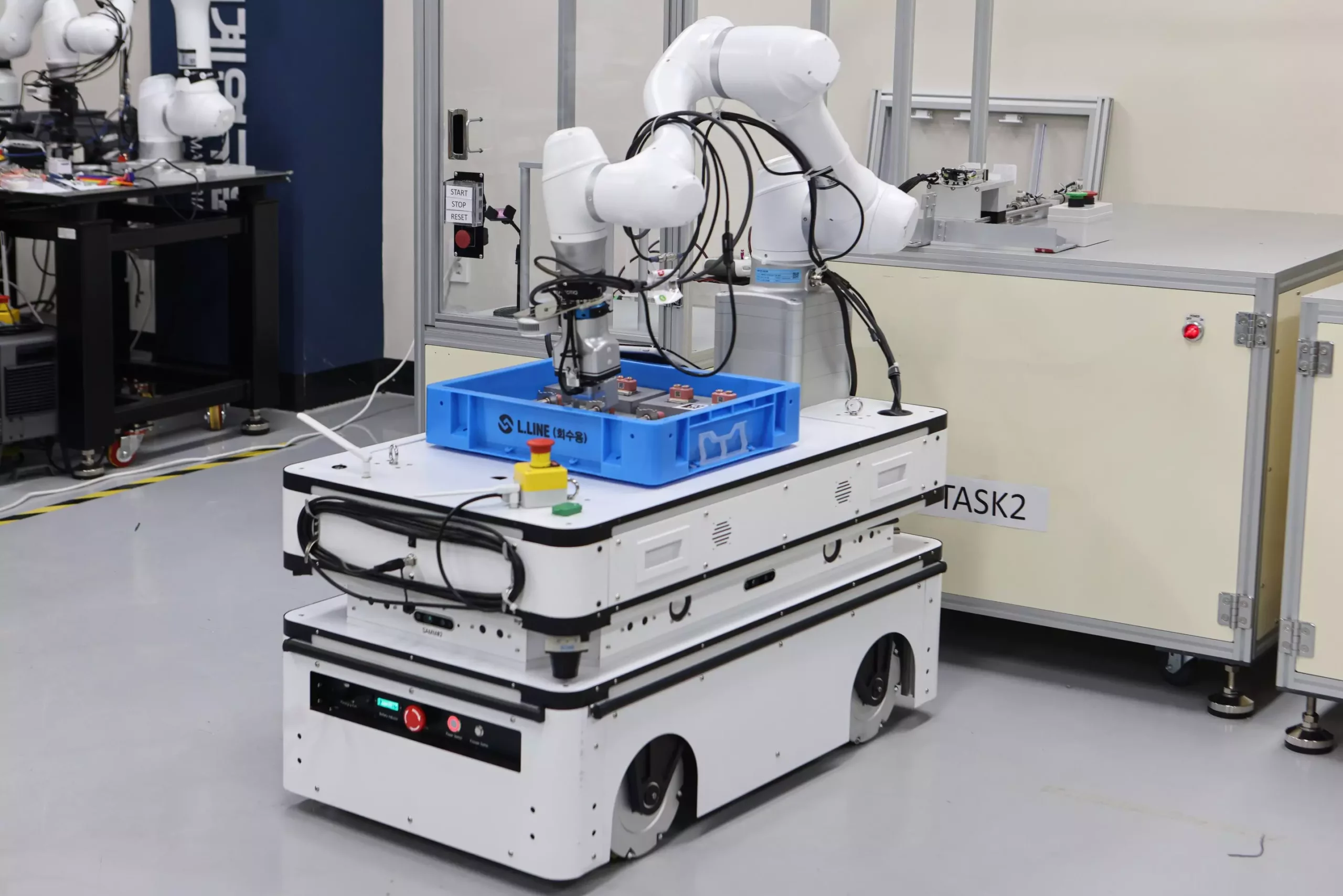In a groundbreaking development, an artificial intelligence (AI) technology for robot work has been created, offering the potential to revolutionize manufacturing processes. This innovation, developed by the Korea Institute of Machinery and Materials (KIMM), enables robots to be seamlessly integrated into various manufacturing operations, including the production of automobiles, machine parts, assembly, and industrial production. By leveraging the new AI technology, the working environment at manufacturing sites is poised to undergo a significant transformation.
Under the leadership of Chang-hyun Kim, the head of the Department of AI Machinery at KIMM, a research team has successfully developed an AI technology that simplifies the application of robots to manufacturing processes. Currently, this cutting-edge technology is being deployed in the manufacturing operations of electronic component producers, with plans for its gradual expansion to encompass a wider range of manufacturers.
At the core of the AI technology lies the “Large Language Model (LLM)” and virtual environment, which enables robots to comprehend user instructions, automatically generate task commands, and execute them seamlessly. This breakthrough allows task sequences and movements to be generated effortlessly via voice or text commands. In addition, the technology leverages pre-learning in a virtual space, enabling the selection of the optimal work point on the site. Furthermore, it aids in streamlining the work process and automating object detection to prevent collisions.
Traditionally, when incorporating robots into manufacturing processes, the site itself had to be modified to accommodate the robot, rather than adapting the robot to the work environment or the object. As a result, the range of tasks that robots could perform has been severely limited. Additionally, the development of comprehensive technology integrating various task-related aspects, such as movement and recognition, has been partial and inconsistent. However, the emergence of technologies like LLM and their integration with robots offers promising opportunities. Unfortunately, the lack of real-world testing in laboratory settings has hindered the practical application of these technologies on actual work sites.
The newly developed AI technology marks a significant leap forward in addressing the challenges associated with robot integration. It enables the specification of tasks to be performed by robots with ease. By leveraging pre-learning in a virtual space, robots can seamlessly perform their assigned tasks with minimal on-site modifications. The ongoing on-site demonstration tests are expected to showcase the effectiveness of this groundbreaking technology in effectively responding to various situations that may arise at manufacturing sites in the future.
The advancement of AI technology for robot work in manufacturing processes holds immense promise for the industry. With the potential to significantly enhance efficiency, flexibility, and productivity, this innovation is expected to spearhead a revolution in industrial automation. By streamlining work processes, automating object detection, and minimizing the need for site modifications, manufacturers can optimize resource allocation, reduce costs, and maintain a safe working environment for employees.
As technology continues to advance at an unprecedented pace, the fusion of AI and robotics opens up a world of possibilities. The successful development of AI technology for robot work in manufacturing processes is a testament to human ingenuity and determination. By harnessing the power of AI, humanity can overcome existing limitations and push the boundaries of what is possible in various industries.
The integration of AI technology into robot work for manufacturing processes heralds a new era of automation and technological progress. With its potential to optimize manufacturing operations, this innovation brings us one step closer to a future where robots collaborate seamlessly with humans, improving productivity, and transforming the manufacturing landscape. The ongoing efforts of research organizations and industry leaders in developing and refining AI technology for robot work will undoubtedly shape the future of robotics in manufacturing.


Leave a Reply